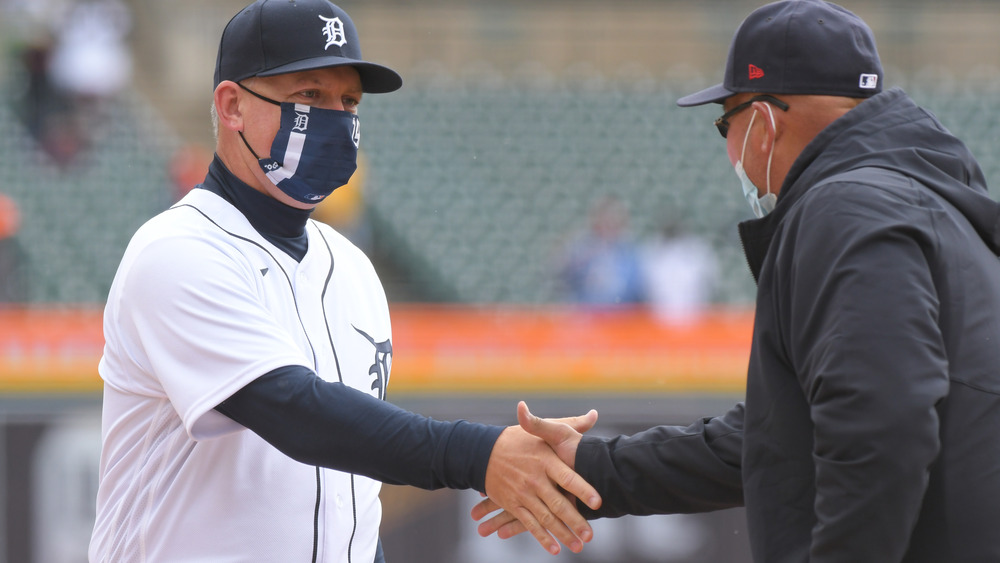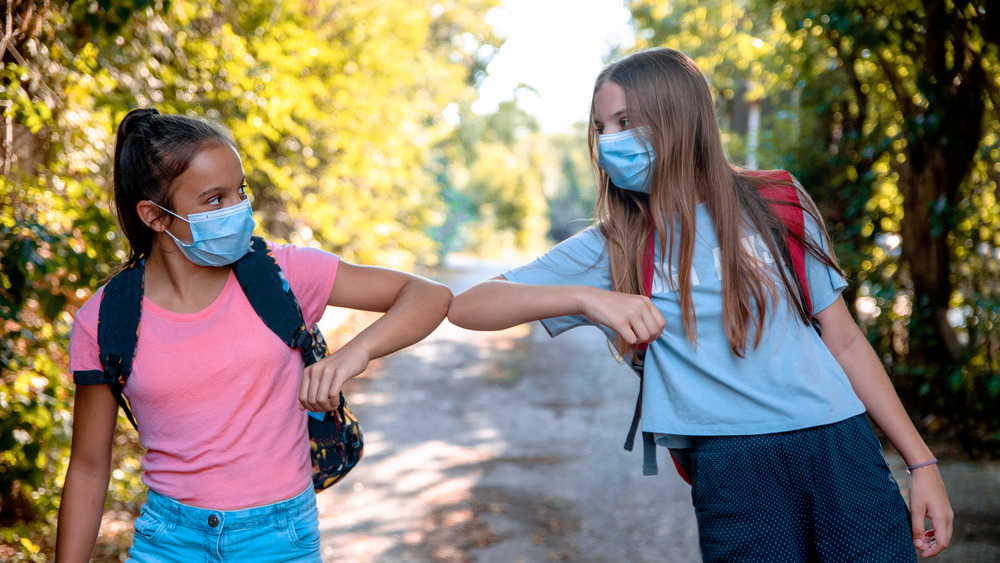The Surprising Reason COVID-19 Won't Keep You From Shaking Hands
The coronavirus pandemic has changed the world as we know it. From small things, like our daily loungewear ensembles, and our penchant for homemade baked goods, to bigger changes, like the way we interact with those around us. It's safe to say that the world will never go back to the way it once was, pre-COVID-19.
However, despite all the pandemic fears and anxieties, there's one habit that no matter how big a health risk, we just can't shake — and that's handshakes. As it turns out, dropping this common social greeting isn't easy, and some researchers suggest that it's actually a behavior that's ingrained in our DNA. According to paleoanthropologist Ella Al-Shamahi, handshaking is not a learned cultural behavior and is studied in a myriad of species, including chimps. This is what leads her to believe that a worldwide pandemic won't be enough to put a permanent end to handshaking (via the Daily Mail).
The handshake is a human behavior that has shown up in most of history
Ella Al-Shamahi believes that handshaking is more than a biological habit, but rather, a human necessity. In her book, The Handshake, she writes per a review in The Telegraph, "I cherish that easy bond between all humans. To be tactile, I would argue, is the best way to build a connection. Touch unites us in a way that keeping our distance can't bridge." Al-Shamahi explains that this tactile form of connection is portrayed through history and media, from depictions in art of Cepheus shaking hands with Perseus, the famous "Hollywood Handshake" in the The Great British Bake Off, and even as the royal family's default way of showing respect. The handshake can mean so much more than a simple hello, which is why researchers believe it to be a pivotal behavior of the human experience.
Once the pandemic is over, and we're given the OK to commence handshaking, only time will tell if the ease and comfort returns. In a journal article from March 2020, Aaron Smith, psychotherapist and instructor in the school of social work at Renison University College, explained, "As we come out of quarantine and isolation, I think we're going to see some people offering handshakes and some people not wanting to touch them with a 10-foot pole." He continues, "There's going to be a lot of awkwardness as people try to figure out how to greet somebody, how to professionally welcome somebody, how to meet your daughter's boyfriend for the first time."
Will the handshake ever be replaced?
But the original reasoning for banning the handshake shouldn't be ignored. "When you extend your hand, you're extending a bioweapon," says Gregory Poland, infectious disease expert at the Mayo Clinic. He believes the handshake to be an "outmoded custom and it has no place in a culture that believes in germ theory," per the BBC.
However, according to Tiffany Field, director of the Touch Research Institute at the University of Miami School of Medicine, social touching is an essential part of the human experience, even on a biological level. As reported by Time, she explained that social touching has been proven to be good for your health. Adding that a simple touch has been shown to "lower stress and activate the release of oxytocin, which is nicknamed the 'love hormone' and helps promote bonding and closeness."
Despite our best efforts to replace the handshake with other pseudo-tactile behaviors, such as fist bumps, foot taps, or the cringe-worthy elbow bumps, there's nothing that can replace the gripping familiarity and comfort of a good handshake.


